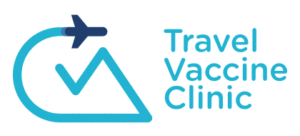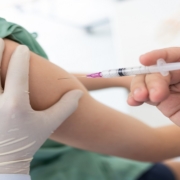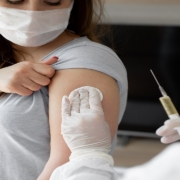No Consult Fee- Travel Vaccine Clinic-Overview of Hepatitis B
What is Hepatitis B Disease?
Hepatitis B is a viral infection that affects the liver. It is caused by the hepatitis B virus (HBV) and can lead to serious liver problems, including cirrhosis and liver cancer. The virus is spread through contact with the blood or bodily fluids of an infected person. Symptoms of hepatitis B include fatigue, abdominal pain, loss of appetite, and yellowing of the skin and eyes (jaundice).
Hepatitis B vaccines are the most effective way to prevent hepatitis B.
The symptoms of hepatitis B can range from mild to severe and may not appear for several weeks after exposure to the virus. Common symptoms include:
- Fatigue
- Nausea
- Loss of appetite
- Abdominal pain
- Jaundice (yellowing of the skin and eyes)
- Dark urine
- Clay-colored bowel movements
- Joint pain
In some cases, people with hepatitis B may not show any symptoms. If symptoms do occur, they typically appear within 2 to 6 months after exposure to the virus. It’s important to note that not everyone who is infected with hepatitis B will experience symptoms.
Who is at Risk of Getting Hepatitis B?
The following groups of people are at increased risk of getting hepatitis B:
- People born in countries with a high rate of hepatitis B, including Africa, Asia, the Pacific Islands, and Eastern Europe
- People who inject drugs
- Men who have sex with men
- People with multiple sex partners
- People with direct contact with the blood or open sores of someone infected with hepatitis B
- Infants born to mothers infected with hepatitis B
- Healthcare and public safety workers who are exposed to blood or needles on the job
- Hemodialysis patients
- Household contacts of people with chronic hepatitis B
It’s important to note that anyone can get infected with the hepatitis B virus, but being in one of these risk groups increases the likelihood of exposure. Getting the hepatitis vaccine in Ontario is the most effective way to prevent hepatitis B.
Countries With a High Rate Of Hepatitis B Include:
- Africa
- Asia
- The Pacific Islands
- Eastern Europe
In these regions, it is estimated that up to 8% of the population is chronically infected with the hepatitis B virus (HBV). It’s important to note that anyone can get infected with HBV, but people who are born in or have traveled to these areas are at increased risk. The risk of exposure can be reduced through vaccination, which is the most effective way to prevent hepatitis B.
How Can Travelers Protect Themselves From Getting Hepatitis B?
You can protect yourself from getting hepatitis B by taking the following precautions:
- Get vaccinated: The hepatitis vaccine for travel is safe and effective and is the best way to prevent infection.
- Avoid risky behaviors: Avoid activities that could expose you to contaminated blood or bodily fluids, such as sharing needles, having unprotected sex, or getting a tattoo or piercing with unsterilized equipment.
- Practice good hygiene: Wash your hands frequently, especially before eating or preparing food. Avoid sharing personal items, such as razors or toothbrushes, with others.
- Be careful with medical procedures: If you need medical treatment while traveling, make sure that any needles or other medical equipment used on you are new and sterile.
- Use protection: If you have sexual contact with someone while traveling, use a latex condom to reduce your risk of exposure.
By taking these precautions, travelers can significantly reduce their risk of getting infected with the hepatitis B virus. It’s important to be aware of the risks and take the necessary steps to protect your health while traveling.
Book your appointment with our travel health professionals at the Travel Vaccine Clinic in North York or in Toronto to discuss how to prevent getting hepatitis B.
Book your appointment now: Travelvaccineclinic.fullslate.com
Or call 416-461-2419.
Say yes to vaccines!
Vaccines prevent diseases and save lives!







